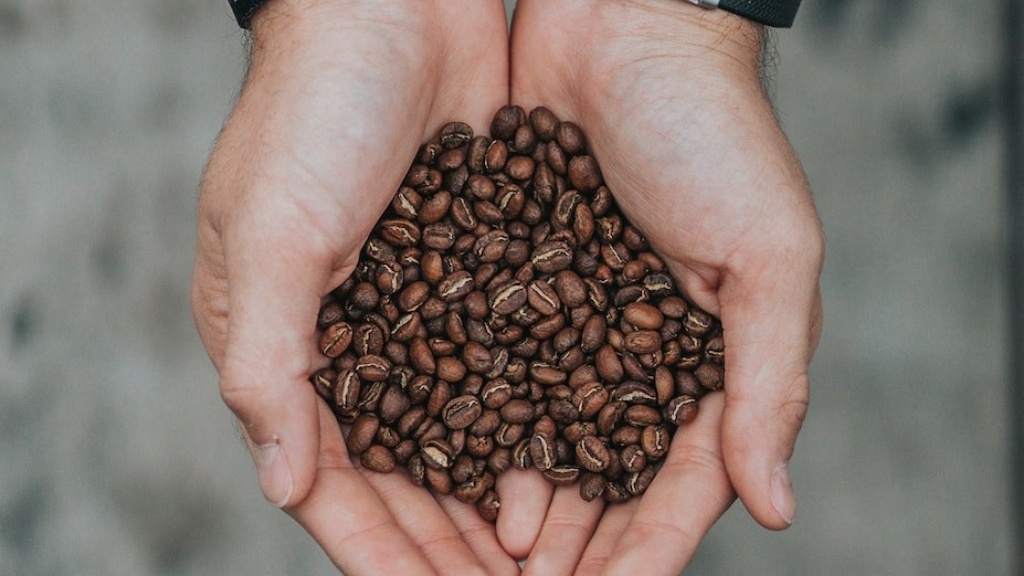Coffee as Part of Your Diet
Coffee has been consumed for centuries and its effects on health are still debated today. Coffee contains compounds such as caffeine, chlorogenic acid and other polyphenols, which have been found to be beneficial for human health in some studies. Coffee consumption has been linked to improved alertness, increased concentration, and even a reduced risk of some chronic diseases.
However, the question of when it is best to drink coffee can be a difficult one to answer. Should you drink coffee before or after breakfast? Is it better to drink it during the day or in the evening? Here, we explore the potential benefits and drawbacks of drinking coffee after breakfast.
Benefits of Coffee After Breakfast
One of the main benefits of drinking coffee after breakfast is that it may help to reduce the amount of time it takes food to move through the gut. This is because caffeine has been shown to stimulate the peristaltic waves that move food through the intestines. This can help to reduce bloating, stomach cramps, and other digestive issues.
Furthermore, studies have suggested that coffee may help to alleviate hunger and control weight by promoting feelings of fullness. Drinking coffee after a meal may help to increase the amount of time between meals, reducing snacking, which can be beneficial for weight loss.
Finally, there is evidence to suggest that caffeine may protect against cognitive decline, improve reaction time, and reduce risk of dementia. Furthermore, it may also decrease the risk of stroke by improving blood vessel function. Therefore, drinking coffee with breakfast could have numerous cognitive health benefits.
Drawbacks of Coffee After Breakfast
Despite the potential benefits of drinking coffee after eating, there are some drawbacks to consider. Caffeine has been shown to increase stress hormones, such as cortisol, which can disrupt sleep and cause fatigue during the day. Additionally, it can interfere with the absorption of certain vitamins and minerals, such as iron, which can lead to a deficiency.
Coffee can also cause digestive upset such as stomach cramps and diarrhea in some people and can exacerbate pre-existing conditions such as ulcers and irritable bowel syndrome. Furthermore, it may also cause teeth discoloration and bad breath.
Finally, it should be noted that excessive coffee consumption can lead to addiction and tolerance. When tolerance builds up, it can be difficult to achieve the same effect as initially experienced. This can lead to increased coffee consumption and eventual dependence.
Alternatives to Coffee After Breakfast
If you are concerned about the potential drawbacks of drinking coffee after breakfast, there are some alternative options. Green tea, matcha, and yerba mate contain caffeine, but less than coffee, and offer some additional health benefits such as improved blood sugar control and enhanced alertness and concentration. Additionally, certain herbal teas, such as chamomile, can provide calming effects that can reduce cortisol levels and aid in sleep.
In addition, there are some other options for increasing alertness, improving concentration, and reducing stress such as exercise, meditation, and yoga. These activities can not only reduce stress and improve alertness, but can also benefit overall health and well-being.
Evaluating the Risks
Overall, it is up to the individual to determine whether or not the potential benefits of drinking coffee after breakfast outweigh the potential drawbacks. Those with existing health conditions or who are pregnant should be sure to consult a healthcare professional before consuming coffee.
It is also important to note that caffeine is not the only stimulant in coffee. Coffee also contains chlorogenic acid and other compounds that may provide additional benefits and may also be beneficial for reducing the negative effects of caffeine.
Finally, it is important to remember to enjoy your coffee in moderation, as overconsumption can lead to increased risk of serious health conditions such as cardiovascular disease.
Time of Day for Drinking Coffee
If you do decide to drink coffee after breakfast, it is important to consider when it is best to consume it. Generally, it is best to avoid drinking coffee within four hours of bedtime, as stimulating the nervous system late at night can disrupt your body’s sleep cycle. Additionally, try to avoid drinking coffee late in the day, as this can affect energy levels and alertness the following day.
The best time to drink coffee is generally between 9am and 11am. This is the time of day when cortisol levels are at their lowest, meaning caffeine will have a greater impact in improving alertness and concentration. This is also the best time to get the most out of coffee’s potential antioxidant benefits, as antioxidant levels are also highest at this time.
Use of Sweeteners and Creamers in Coffee
If you do decide to drink coffee after breakfast, it can be beneficial to consider the type and amount of sweeteners and creamers you are adding to your coffee. Consumption of sugary substances has been linked to an increased risk of type 2 diabetes and tooth decay, so it is best to use a small amount of sweetener, if any.
It can also be beneficial to use low-fat or non-dairy creamers in coffee, such as almond milk or coconut milk. These types of creamers generally contain fewer calories, fat, and sugar than regular milk.
Purchasing Quality Coffee
In addition to considering the type and amount of sweeteners and creamers used in coffee, it is also important to obtain quality coffee. This means selecting beans that have been either roasted or ground within the last two weeks, as beans that have been sitting for extended periods of time will lose their flavor. Additionally, opting for organic, Fair-Trade certified coffee can be beneficial, as it demonstrates a commitment to sustainability.
Preparing Coffee at Home
Finally, if you do decide to drink coffee after breakfast, it is important to consider the method used to prepare it. Preparing coffee manually at home can be beneficial, as it allows for greater control over the brewing process, allowing for maximum flavor and aroma extraction from beans. Additionally, brewing manually can provide better consistency and can also be more economical than purchasing beverages from cafes.
Conclusion
Overall, the decision of when to drink coffee and how much to drink is one that should not be taken lightly. This is because coffee can have both beneficial and detrimental effects on health, depending on individual circumstances. Therefore, it is important to consider all of the potential health consequences and inform yourself on the best ways to enjoy coffee responsibly.





